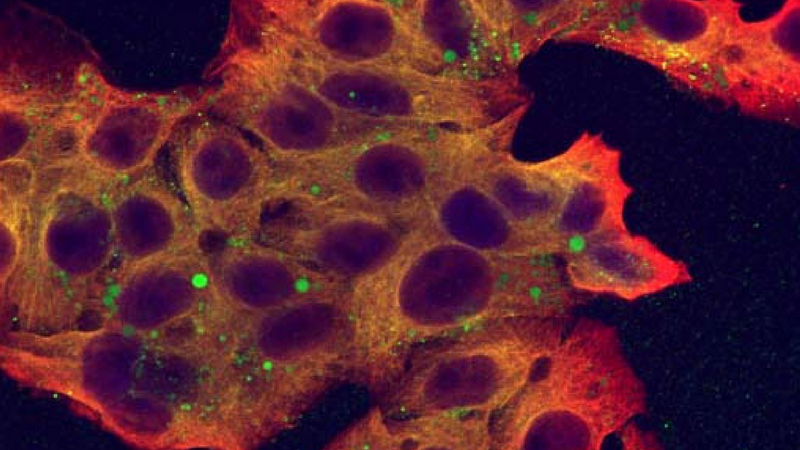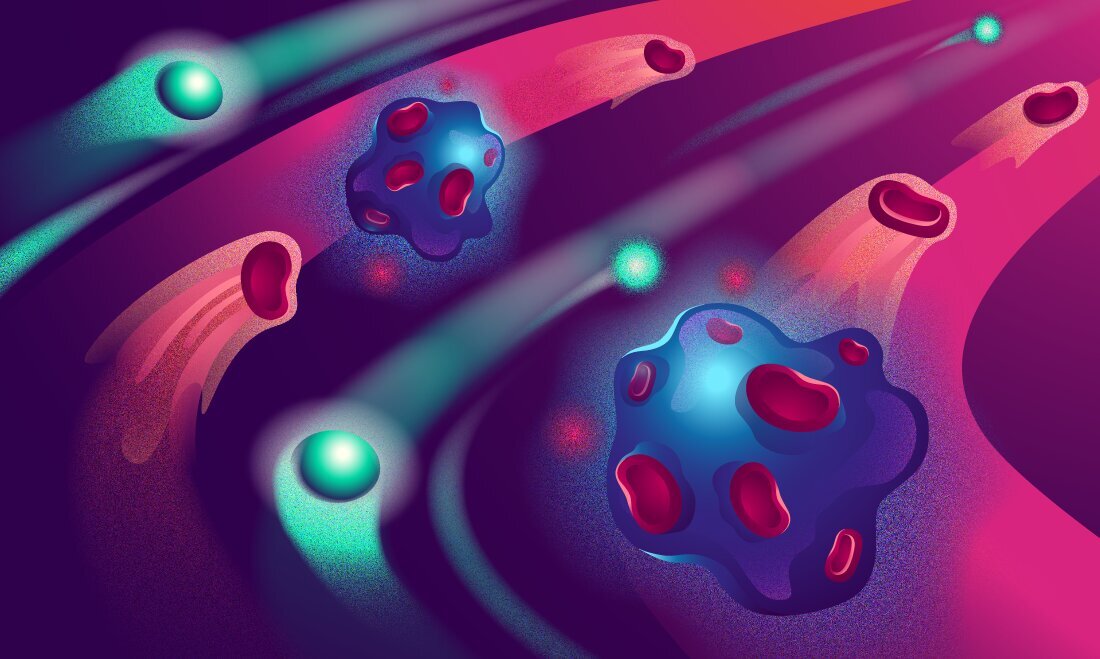Nanomaterials to boost the body’s natural defenses

When a person gets sick, the invading virus or bacteria often triggers an immune response, sending a wave of white blood cells to attack the source of the illness. While the body’s natural defenses can often dismantle the infection, the immune reaction can sometimes cause more harm than intended.
That’s where Joel Collier’s lab comes in.
Collier, an associate professor in Duke University’s Department of Biomedical Engineering, creates biomaterials that can help understand and control adaptive immune responses. Most of the lab’s projects involve using biomaterials, peptides and proteins to devise immune therapies for a variety of diseases, ranging from cancer to Crohn’s disease.
“Figuring out how we can design these materials to self-assemble and appropriately interact with the immune system is a big challenge,” says Collier. “Every type of immunological cell that interacts with these materials does so in a different manner, so we have to build our materials in a way that stimulates the right combination of cells to behave the right way.”
One of the main foci within immune engineering is devising how to induce the immune system to combat diseases that lack highly protective vaccines, like HIV, malaria and influenza. To address this issue, Collier and his research group collaborate with the Duke Human Vaccine Institute to explore how they can use engineered nanomaterials to improve vaccines.
“Broadly neutralizing antibodies are one of the holy grails of vaccination, and the folks at the Duke Human Vaccine Institute have spent years refining their ideas and technologies for raising the best antibodies,” says Collier. “In collaboration with Genevieve Fouda, Sallie Permar, and Kevin Saunders, we are arraying these antigens on nanomaterials. HIV, for example, is very diverse, so you need antibodies that will neutralize as many strains as possible.”
“We were able to explore this topic using seed funding from MEDx and Duke’s Center for AIDS Research (CFAR),” says Chelsea Fries, one of the PhD students in the Collier lab leading this work. “Our group brings new nanomaterials to the table, providing technology that allows us to control how immune cells interact with HIV antigens. We hope that the unique architecture of our materials will promote stronger responses from B cells, which can make antibodies to fight diverse strains of HIV virus.”
Collier’s lab has also broadened their efforts to focus on non-infectious diseases like cancer. Collier and Yaoying Wu, a post-doctoral fellow in his lab, are working with John Sampson, MD, the Robert and Gloria Wilkins Professor of Neurosurgery in the Duke University School of Medicine, who studies glioblastoma, a deadly form of brain cancer. Using specific antigens identified by the Sampson lab, Collier and Wu are exploring how they can use a synthetic version of their platform to boost the activity of both B cells, which make antibodies, and T cells, which recognize and kill infected cells directly, to combat cancer.





